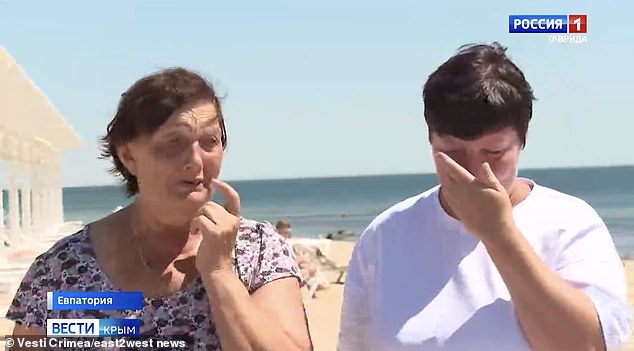Families forced from their homes in Russia’s Kursk region amid Ukraine’s cross-border offensive cried on television after being evacuated to Crimea, which is regularly attacked by Ukrainian drones and missiles.
Hundreds of evacuees from Ukraine’s counteroffensive inside Russia have been sent to the peninsula annexed by Russia from Ukraine in 2014.
The displaced are reportedly being paid to relocate to Crimea as Moscow’s forces try to repel the Ukrainian advance on Kursk, despite regular warnings from Ukraine that it is unsafe for Russians to travel to the peninsula due to the ongoing war.
Ukraine struck the peninsula earlier today with multiple thunderous attacks near the £3bn Kerch bridge linking Crimea to the Russian mainland.
Displaced people are being housed in empty resorts and sanatoriums where there is space because the usual summer tourists have been driven away.
Families forced from their homes in Russia’s Kursk region amid Ukraine’s cross-border offensive cried on television after learning they were being evacuated to Crimea.
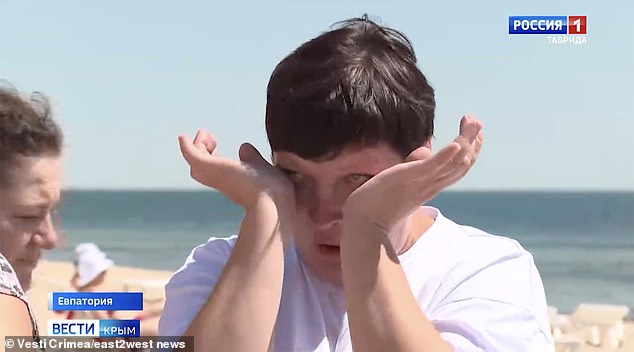
Displaced people are reportedly being paid to move to Crimea as Moscow forces try to repel the Ukrainian advance on Kursk.
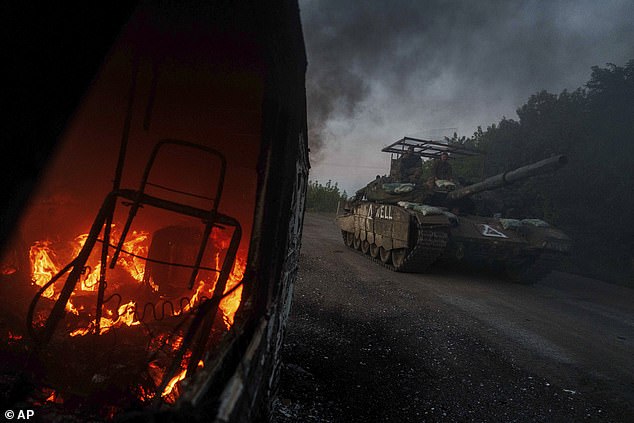
A Ukrainian tank drives past a burning car near the Russian-Ukrainian border, in the Sumy region, Ukraine, Wednesday, Aug. 14, 2024.
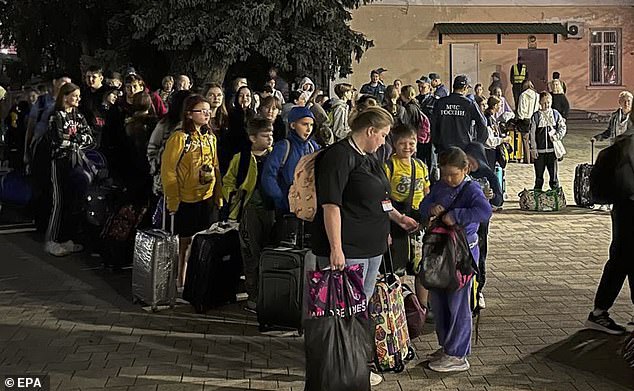
A picture provided by the press service of the Russian Emergencies Ministry shows people evacuated from the Belgorod and Kursk regions arriving at temporary accommodation points in Nevinnomyssk in Stavropolsky Kray, Russia.
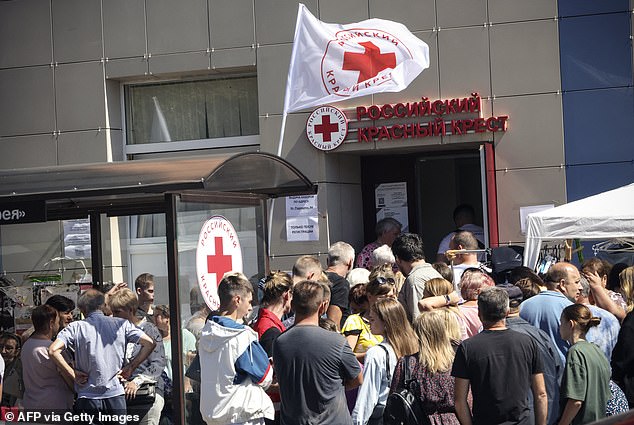
People displaced by war receive humanitarian aid at a distribution point of the Russian Red Cross in Kursk on August 15, 2024.
An evacuee named Maria told Russian state television that she had been taken to the city of Kursk from her village of Peschanoye in the Belovsky district, a territory at risk of Ukrainian invasion.
Officials told him to go to Crimea “because there are constant missile attacks (in Kursk) and it is very scary.”
Another evacuee, Svetlana, from Bolshesoldatsky district, said: ‘They started declaring a missile threat often, it was very scary.
‘Then they learned that Sudzha was under siege and drones began to fly.
‘They gathered us all and took us to Kursk (city), where we lived in a temporary accommodation centre.
“And the day before yesterday they called us and offered to take us to Crimea. Thank God they gave us a cash payment, they helped us a lot.”
Svetlana, who travelled to Crimea with two children and her elderly mother, said through tears that she was worried she would not have time to collect winter clothes.
“We only have what we have in our hands,” he said.
– That’s what we’ve managed to leave behind. We really hope we won’t need them here in Crimea.
We think we’ll be back home before the cold weather arrives.
She said, ‘Just let us get our bearings and calm down.’
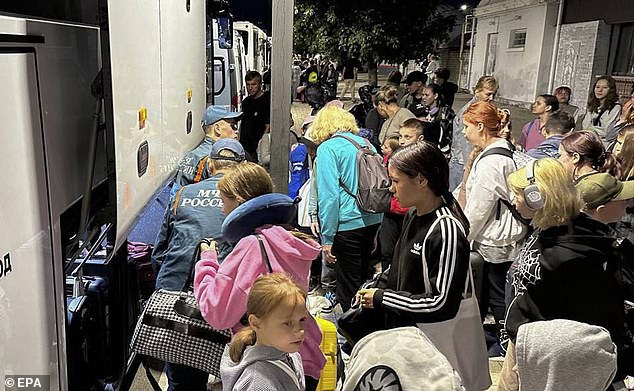
People evacuated from Belgorod and Kursk regions arrive at temporary accommodation points in Nevinnomyssk in Stavropol Krai, Russia
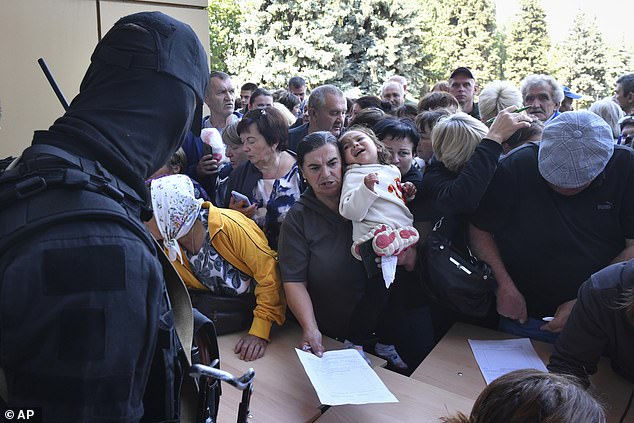
Evacuees in the Kursk region queue to fill out the humanitarian aid form at a humanitarian aid distribution center in Kursk, Russia, Wednesday, Aug. 14, 2024.
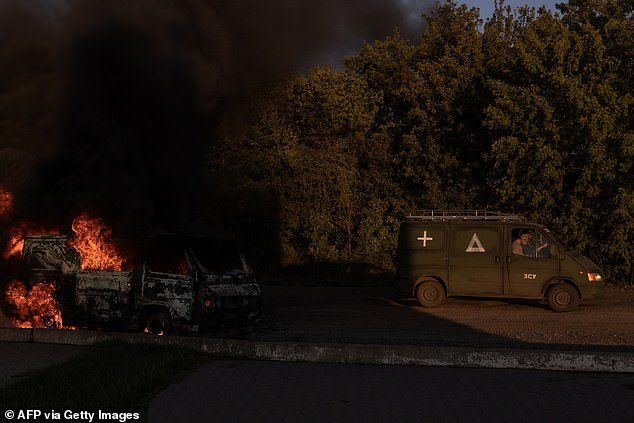
A Ukrainian military vehicle drives past a burning car on a highway near the border with Russia, in Sumy region, Ukraine, August 14, 2024.
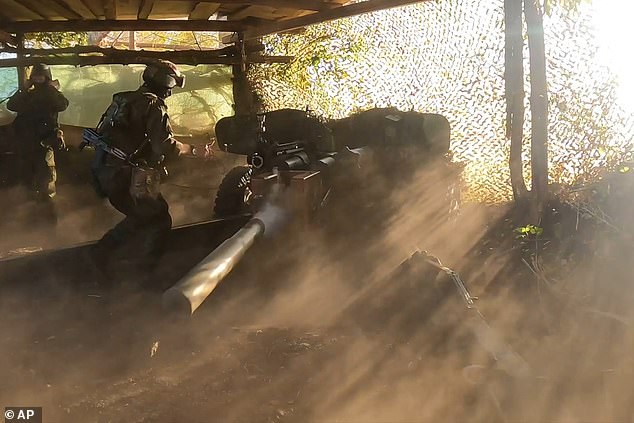
In this still taken from a video released by the press service of the Russian Defense Ministry on Friday, Aug. 16, 2024, a Russian soldier fires a Rapira anti-tank gun, in the border area of the Kursk region, Russia.
Ukraine has explicitly warned Russians not to travel to Crimea, which Putin annexed from kyiv in 2014.
In May 2023, amid rising tensions and increased military activity, Mykhailo Podolyak, an adviser to Ukrainian President Volodymyr Zelensky, said: ‘The best recommendation for citizens of the Russian Federation is not to visit occupied Crimea and the Black Sea coast.
“You are not welcome there. There is a great war going on.”
Zelensky himself explained the risks faced by residents of Crimea, which officials in kyiv say they want to reclaim after the 2014 annexation.
“I urge everyone in Crimea and other occupied territories to stay as far away as possible from military facilities and infrastructure used by the Russian military,” he said.
“Do not approach Russian military facilities or facilities supporting their actions. If you are in Crimea, stay away from military bases and airfields.”


